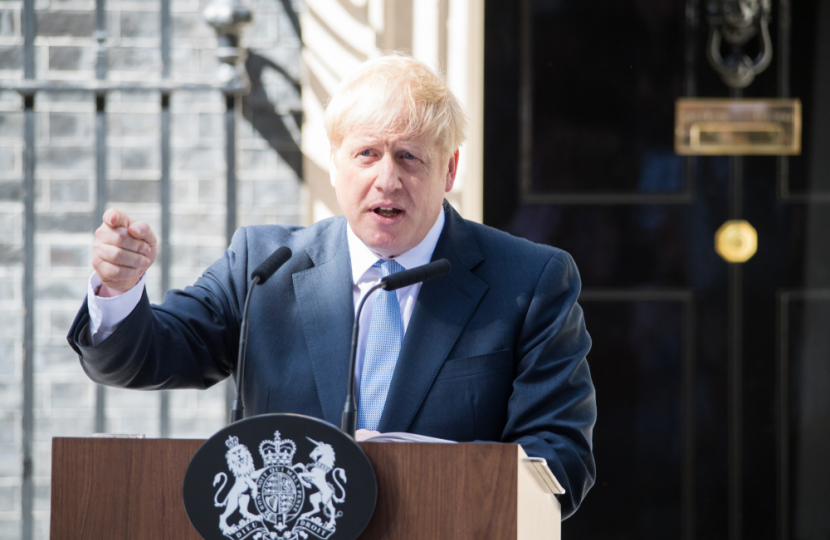
Boris Johnson has accepted he has to re-set his administration and demonstrate, as we come out of Covid that the approach of his government will shift significantly. Out must go the competing priorities and lazy rule-breaking and in must come the narrow focus on delivery.
The welcome removal of some of those who worked for him in Downing St and the arrival of new people, is a start. However, I have been in Parliament long enough to know that such change alone doesn’t meet the public's priorities. That is, unless it is accompanied with something more – the delivery of promises, made at the last election. Looking back, Boris Johnson, despite huge pressure, often got key things right. For example, the bold investment in the private sector to create a Covid vaccine quickly.
Rolling out the vaccine earlier than the EU by not joining their bureaucratic plan. And finally ensuring we had enough vaccines to give all adults three jabs. Such decisions will have saved many lives and Boris was responsible.
Yet as the casual rule-breaking in Downing Street shows, systemic change is required if the British people are able to signal their approval for this government. The structure around the Prime Minister must also be of the highest quality with discipline at every level. Perhaps the best example any Prime Minister can have of discipline and clear structure is that of Margaret Thatcher. Under her, Downing Street was efficient and focused on delivery and as a result, able to ensure she delivered on her promises.
This Government needs to remember that despite Covid, it was elected to deliver the benefits of Brexit, level up and deliver lower taxes. Whilst bogged down for the most part of two years in the Covid crisis, what remains all too clear is that it has yet to make a breakthrough on those priorities.
However, as it does, it must also deal first with the cost of living crisis. Importantly, as this will affect the poorest hardest, it shouldn’t do anything to make it worse. To that end, why raise National Insurance to fund Social care and the NHS backlog reduction now? Whatever else the need for the money, many economists question the need at this time to hike National insurance rates to do so. That’s because the Chancellor has more financial headroom than seemed likely last autumn and can still meet his long-term fiscal targets. He should at least pause the NI rise.
There’s another reason. Such an increase doesn’t just add a burden to individuals, it will slow the economy at a time of growing pressure. After all, if the Chancellor takes more from peoples incomes, they’ll cut their consumption which will lead to slower growth and growth right now is critically important. In fact the government could go further to take the pressure off by removing VAT from fuel and from green products. After all we did pledge to deal with VAT when we left the EU.
Also we have had a real reminder of how vital gas is still for our economy. Sitting on huge reserves of gas in the UK, we should surely look to produce more of our own gas. After all as the government’s own figures show, using U.K. gas would boost tax revenues and produce less CO2 than the imported gas we have to use right now and importantly it will give us security of supply.
Now the Bank of England’s forecasting two years of falling real incomes, the government needs to return to the Conservative principle that reducing the burden of tax from business and people, actually grows the tax revenues. The government shouldn’t think it can wait to deliver lower taxes later, it needs to start now, or it risks looking cynical later.
If we are serious about levelling up then we should accelerate the rollout of free ports all over the UK, including Northern Ireland. I cannot understand the delay. These will need reductions in duties and importantly tax-free status.
If properly done, then they will give a huge boost to areas which have been left behind for far too long. Business will move to those areas to take advantage of the lower cost base and job creation will create new skills and investment in often run down places.
On top of that, the government now needs to turbocharge the changes to our often heavy-handed EU regulations. One of the main reasons for leaving the EU was the opportunity it gave to shape our regulations to suit the UK’s needs.



